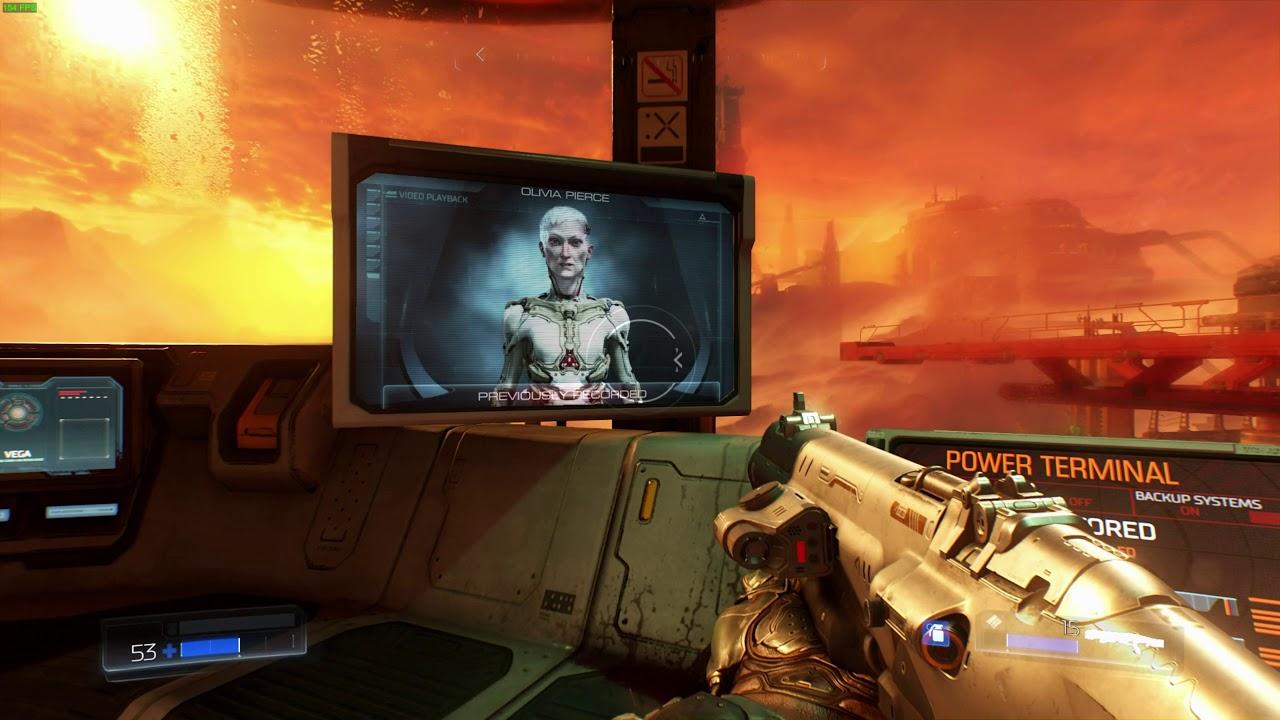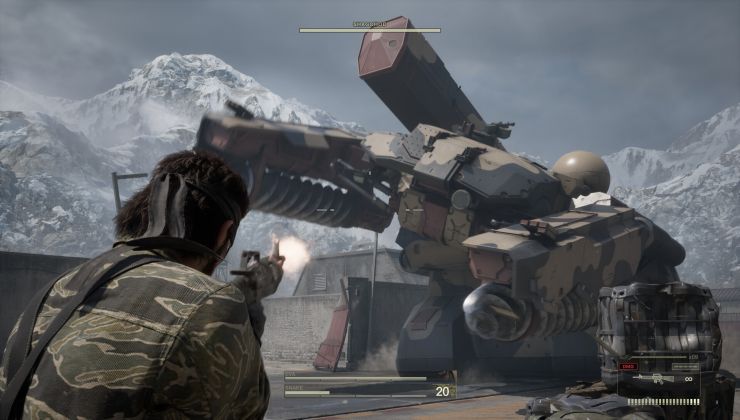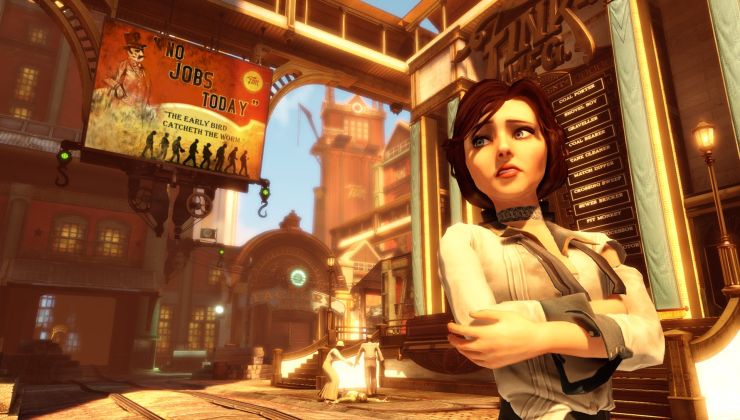With the dust settling on the absolute bomb that Valve dropped with the new Steam Play feature, I’ve had a little time now to think about the broader implications. It’s obviously a lot to process and these are just my own personal thoughts.
In the short time Proton has been live, the Linux gaming community has come together in a way that I've not seen in all the years I've been doing this. Looking at the GitHub page for Proton, there's already masses of people submitting issues, mentioning games that work perfectly to add to Valve's whitelist of games, people submitting code to help the project along and so on. There's also a massive document on Google Docs, with people submitting their findings on how games run. Seems like it's off to a rather good start!

Direct Link
One of the major worries I had initially, which I’ve seen others share, is that this could mean the end of native Linux ports. However, I have a different take on it.
When it comes to the long-term viability of Linux gaming, getting 2 or 3 AAA games natively ported a year is simply not sustainable. While I am absolutely appreciative of the effort and a big fan of the porting studios, we needed something else to complement native ports to help push us forward.
To be clear on something, I’m absolutely all for the famous “No Tux, No Bucks” slogan people like to throw around. It’s a brilliant thing that there’s a lot of enthusiastic people out there sticking to their guns, buying only games that support Linux. A small reality check though: for the vast majority of developers you’re basically pissing into the wind due to our market share. Developers aren’t likely to see enough sales to think it’s truly worth the effort.
Thinking that this will completely kill off ports from Aspyr Media, Feral Interactive and other porters is probably thinking too short-term. In my mind, this could actually help them quite a lot when thinking about the bigger picture.
With this Steam Play move, this could be a massive push for more people to actually play their games on Linux, get more people actually install Linux and so on. This could, at least in theory, give native porting houses a much bigger market to sink their teeth into. After all, the biggest problem we face is market share, what happens if this starts to move it upwards? Like with SteamOS though, let’s keep expectations in check—I don’t expect this to instantly move mountains. However, this seems like a long-term plan that’s thinking ahead and if it does result in more people using Linux for gaming, that will benefit the entire platform—not just gamers.
Think about it: what’s the single biggest issue people have when it comes to sticking with Linux for their gaming requirements? The actual games, duh. If this bridges a gap for all the people that claim “if x game worked on Linux, I would be on Linux” this probably will become a game changer. Especially important, is the fact that this doesn’t require time and effort to configure, like any other Steam game (for the whitelisted games at least) it will be click and play. The value of that, should not be underestimated. To give an example of that, see the below video:

Direct Link
It’s especially important for all those games people have on Steam that they would otherwise lose access to when moving to Linux. People shouldn’t have to lose their favourite games! Even if it’s only used as a bridge while people move towards purchasing native titles, it’s still an extremely useful feature.
Valve told us directly, that purchases of Windows games played with Proton on Linux will count as a Linux sale. If you missed the update to the previous article, they said this:
Hey Liam, the normal algorithm is in effect, so if at the end of the two weeks you have more playtime on Linux, it'll be a Linux sale. Proton counts as Linux.
So, with any luck, all the people who were already buying Windows games for Wine (and any users coming over to Linux from Windows) will start doing so from within Steam directly. Now if you pick it up to play in Steam Play and a native Linux port comes later (for those times when a release is delayed) you’ve still been counted for Linux gaming—which is truly awesome!
This may help give Linux gaming a more positive outlook in the eyes of developers looking at their sales statistics. That’s quite a big point to reflect on. This might give developers who otherwise ignored Linux some incentive and a push to actually support the platform. If they suddenly start seeing a ton of people buying on Linux, it might start some interesting conversations about actually supporting it officially. Those types of conversations end up creating waves through the entire industry, I've already seen a lot of developers quite excited and hopeful about it all, so it's already making a positive impact on some.
There’s other points to think about too. Linux GPU Drivers and the Vulkan API will be given a much larger testing pool. I imagine this benefiting them greatly. Valve said it themselves in their announcement, that they recommend that developers target Vulkan (as well as telling developers to avoid invasive third-party DRM middleware), so this could be a good way to push Vulkan which is better for all of us since it’s an open API.
However, Valve’s Proton can only do so much for performance and getting a game to work in the first place. What about bugs in the game itself they literally cannot code around to get it working on Linux? What about the masses of online-only games, that have various forms of anti-cheat that Proton/Wine simply cannot handle?
There’s a large number of games that only half work or simply don’t work at all. What about when your favourite game gets an update, which breaks it with Proton? There’s likely many cases that I’m probably not even thinking of, where Valve’s solution simply wouldn’t work or would give a subpar experience.
This is where native ports will still be king. You know what you’re buying will work on Linux and it will give you official support from the developer. When it gets updated, you know it’s still going to work because that’s literally their job to ensure it does. That’s likely the major reason why native ports won’t, or rather shouldn’t, dry up. Valve have to attempt to support a massive, ever-increasing library of Windows-only games and so their resources are going to be spread pretty thin on this. Not to mention that there’s always a chance that Valve could decide to pull back on support in a year or two if they decide it’s not working well enough.
Compare that with a developer putting out a Linux version; obviously they have a much smaller (and likely easier) bit of code to focus on. I would still expect the experience to be superior with a native port, since it’s tweaked specifically for Linux and it’s likely gone through some proper QA. When it comes to games that do require anti-cheat that doesn't (and might never) work with Proton, this could end up being a rather lucrative selection of games for game porters.
Like what happens when any new tech comes out, porting companies will need to adapt to survive. I hope they do, I want them to. The more options we have, the better it is for everyone.
I mentioned drivers briefly earlier. Well, how many times do you think driver issues have held up a Linux port? From what I know, quite often. If we do indeed get better drivers as a result of this, it might also create fewer issues for developers when it comes to doing native ports. We know that some driver developers have been specifically fixing issues with games in Wine, so it sounds like it's been someting ongoing for some time now.
I did speak to Feral Interactive, who told me “Our plans for our future Linux projects haven't changed.”. So we should be able to look forward to continued native Linux ports, including their currently announced Linux ports for Life is Strange: Before the Storm and Total War: WARHAMMER II. I also reached out to Aspyr Media, who declined to give a public comment for us at this time and Virtual Programming did not reply at all.
It remains to be seen what truly happens, but this is probably one of the biggest things to ever happen to Linux gaming. It’s a very interesting time to be both a Linux gamer as well as someone who writes about Linux gaming news.
At the very least, it’s put Linux gaming back on the map for a lot of people. I’ve lost count many times over at the amount of people sending us messages across our various social networks, telling us how excited they are about the possibilities of this.
These are just my own thoughts, I invite any game developer, game engine developer or game porter to write their own post to talk about it. Our submissions are always open and I appreciate having different viewpoints.
Also, as a final note, I find it somewhat amusing that John Carmack said this back in 2013:
Improving Wine for Linux gaming seems like a better plan than lobbying individual game developers for native ports. Why the hate?
To pinch a popular meme—it’s as if Valve said “hold my beer”.
Liam, I'm pretty sure that only whitelisted Windows titles count as Linux purchases. Could be wrong, but I was under that impression from their initial announcement.I'm pretty sure no. What they said to Liam was, "Playing on Proton counts as playing on Linux". Seems pretty unambiguous. I don't see why it would matter whether the thing you played on Proton was whitelisted or not, you're playing on Proton.
Naive question, what's with the name Proton? Must be some reason behind this name. Just curious.Whatever the reason, it's a pretty positive name.
Speaking of SteamOS: Isn't Steam Play available on SteamOS? I've got the Steam client running on both Fedora Linux and a dedicated SteamOS machine, but I don't see the option to "enable Steam Play" for supported nor non-supported games.The options aren't there in Big Picture, you're right. You have to switch to the desktop client, enable it, restart, go back into the options and double-check the settings, possibly restart Steam again, then go into Big Picture and it will work.
(Edit: I am referring only to Steam in Big Picture on a regular distro, as I had read your question as for both SteamOS and Fedora. I haven't used SteamOS since the first release, and the process seems to be different - see next comment.)
Last edited by adolson on 25 Aug 2018 at 5:11 am UTC
Speaking of SteamOS: Isn't Steam Play available on SteamOS? I've got the Steam client running on both Fedora Linux and a dedicated SteamOS machine, but I don't see the option to "enable Steam Play" for supported nor non-supported games.On SteamOS, Steam Play is already enabled, but only for the supported titles.
You can enable the rest with:
https://github.com/ValveSoftware/steam-for-linux/issues/5631
Make sure you're using Steam Beta client.
have you thought linux would ever have AAA titles like tomb raider or hitman?
...yes. During the first big wave of Linux gaming, starting around 2001, we had a bunch of great games, including some pretty big titles, years before Steam even existed.
Here are just a few of what I played back in the day: Civilization: Call to Power, Descent 1-III, Neverwinter Nights, Return to Castle Wolfenstein, Quake III Arena, Unreal Tournament (and 2003, and 2004), FreeSpace 2, Heretic II, Soldier of Fortune, Heroes of Might & Magic III, Kohan: Immortal Sovereigns, Majesty Gold, Medal of Honor: Allied Assault, Postal 1+2, Sid Meier's Alpha Centauri, Railroad Tycoon II, Rune, Serious Sam: The First/Second Encounter, Sim City 3000 Unlimited, Sacred: Gold Edition, and more.
I still have most of my game discs, too. Some are Windows versions with binaries released after the fact, some are ports published specifically for Linux (usually by Loki or LGP), and some had the binaries on the disc alongside the Windows version.
The Sims was also available for Linux, ever so briefly, thanks to Transgaming's "WineX technology" (later renamed to "Cedega" ). They even bundled it with Mandrake Gaming Edition... Nobody remembers this shit but me?
Yeah, I remember. I can still get my Alpha C disk to run if I tinker more than I'm normally used to, although I think last time there was no sound.
I do think you have a point. This is clearly a play by Valve intending to grow Linux marketshare, because they fear Microsoft's moves may at some point kill their business, and if you take some of Gabe's statements at face value, because they like open. But, it might not work. I remember when Linux suddenly went from a few moldering Loki ports to somewhere close to as many games as Mac, I thought for sure that would be enough for a significant influx of the more casual gamers, especially since where people hate Windows 10 now, they hated Windows 8 then. That shift does not seem to have happened in numbers big enough to nudge Linux market share visibly. So this, too, may not be enough of a push to make a huge difference. In the end, maybe nothing short of some of the big computer sellers, like Dell and Acer and all the other hacks, preinstalling Linux on half their stuff (as in, half the boxes being sold on store shelves), will actually work--and MS has had fixes in there for a long time.
At the same time, I suspect Valve has some other shoes which it is positioning to drop. And then there is the side question of Chromebooks. Chromebooks have been quietly selling quite well for years now, but in the last year or so Google have started to quietly migrate them up the value chain. They're not all tiny toy laptops any more. At the same time, Google seems to have been somewhat sidelining the original "everything in the browser" gimmick in favour of letting ChromeOS be, to some extent, the real (Linux) OS it always was under the hood. Soooo . . . at some point, Google is going to be selling appreciable numbers of Chromebooks capable of playing actual games. Steamplay anyone? Voila: Mass marketed computers with a Linux OS preinstalled, capable of playing most Windows games (and of course a lot of native Linux ones, and Android stuff as well).
I don't think Steamplay is a slamdunk, particularly not all by itself. It lowers the barriers to switching (again) but the crowd who have any idea what switching even is remains comparatively small. But it is a good move, a fair number of people on the fence may well switch, and above all it does not strike me as something which is likely to be an isolated move. Add in Steam Machines redux, Chromebooks at the higher end, some other retail play, Sony going with Vulkan . . . there are lots of moves that could go with this. What's that overused buzzword--synergy. This is the kind of thing that can have synergy with other stuff.
Yeah, it "costs" me titles. Big whoop-de-f'ing-do. It'll ultimately get me stuff that'd never have happened before because those "lost" titles were never going to happen in the first place.
Whether this is a win or not remains to be seen- but it's not the horrible thing some make it out to be.
If steamplay doesn't lead to increased market share, this move will backfire.
But recent news are super optimistic. Of course it's not golden yet. But it is a step to a moment, when Witcher 3, GTA V, Fallout 4 just works on Linux, you decided to buy them and those games are counted as Linux sale.
What's more - I hope all people that usually use Wine and run Steam games will switch to Proton - they will start to count as Linux gamers.
Personally I would like Valve to have this functionality before announcing Steam Machines. And I was talking about such a functionality long long time ago, so I'm glad Valve had similar idea here.
Yeah, it "costs" me titles. Big whoop-de-f'ing-do. It'll ultimately get me stuff that'd never have happened before because those "lost" titles were never going to happen in the first place.
Whether this is a win or not remains to be seen- but it's not the horrible thing some make it out to be.
If steamplay doesn't lead to increased market share, this move will backfire.
If this doesn't help then what will?
If this doesn't help then what will?
That is right. If this doesn't help, nothing can.
If this doesn't help then what will?
That is right. If this doesn't help, nothing can.
Nonsense. I already mentioned some other things that could help in my wall o' text a few posts ago. One thing that would most certainly help is mass marketed retail desktop and laptop computers running Linux. I love System76, ZaReason etc. but they are small companies with small retail channels selling mostly to the already converted at arguably uncompetitive prices. I mean mass marketing by big companies with big retail channels, like if someone bought a computer at random they'd have a decent chance of happening to hit a Linux one. Basically, OSes will mainly be used in proportion to how many computers with those OSes on them are sold. Microsoft's stranglehold on pre-installs has always been the key to their dominance. Breaking it directly would absolutely work--it's just very difficult to arrange.
That's why Chromebooks are important. They are in fact a computer with a Linux OS slowly breaking the MS retail stranglehold. Note how they've been succeeding by defining a niche which can be seen as only quasi-desktop-computing and are now starting to expand out of it. Thing is they've got an established retail channel now, so stores aren't going to laugh at them when they want to expand/diversify it a bit.
Steam Machines were an attempt to do a similar thing, define a niche (a potentially quite large niche) that was not exactly desktop computing, and populate it with Linux boxes. It's a tough niche though, and both Valve and Linux weren't really ready. Linux at least is pretty close to ready now though, and this Proton thing is a significant piece of that readiness.
according to what was tested and registered on the google docs:
32.8% completely stable
23.8% stable
5.2% unstable
23.6% crashes
8.3% unplayable
6.4% won't start
i made an chart my self from wineHq a few years ago (platinum, gold, silver, bronze, garbage), it would be interesting to see how things has changed, but i cant find the chart.
in any case, this is different since this is click and play, they have better funding now and this list is recent (dont include games that stoped working in the past and no one tested it again since then)
Problem with the Google Doc is, a lot of test results are useless.
Many failing test results are missing the requirements: https://github.com/ValveSoftware/Proton/blob/proton_3.7/PREREQS.md
People should read them before adding their results because it's waste of time.
not really useless, the fails may be false negatives, but the games who do work certainly are true positives
based on WineHQ, november/december of 2014:
platinum: 3822 3831
Gold : 3334 3343
Silver: 2961 2965
Bronze: 2449 2456
garbade: 4027 4034
Date: 30/11/2014 21/12/2014
total-tested 16593 16629
percentages:
platinum 23%
gold 20,1%
silver 17.8%
bronze 14.8%
garbage 24.3%
Problem with the Google Doc is, a lot of test results are useless.
Many failing test results are missing the requirements: https://github.com/ValveSoftware/Proton/blob/proton_3.7/PREREQS.md
People should read them before adding their results because it's waste of time.
Exactly the same I thought yesterday reading this doc.
Also what I've observed is that the most games run ether well on nvidia or mesa but mostly not on both - interesting.
ok, that is bad, really really bad!
There's always been a perception that Wine would never really be "done", but at the rate it's been developing lately and at the rate it may develop now with even greater focus on it, that perception may turn out to be mistaken. Well, at least for people with AMD graphics, where the community can make sure it all works.
this could be a massive push for more people to actually play their games on Linux, get more people actually install Linux and so on
“if x game worked on Linux, I would be on Linux”
I really doubt this.
Those few adventurous Windows "gamers" who might have been seduced by the idea of using GNU/Linux instead of Windows, will very quickly realize that their games run like crap in Wine / Proton. They will quickly move back to Windows with their tail between their legs and probably never think about using GNU ever again.
There’s a large number of games that only half work or simply don’t work at all. What about when your favourite game gets an update, which breaks it with Proton?Exactly.
This is also shifting a lot of work onto the Valve's Linux team, which as far as I know is relatively small.
Last edited by thykr on 26 Aug 2018 at 11:47 pm UTC
Those few adventurous Windows "gamers" who might have been seduced by the idea of using GNU/Linux instead of Windows, will very quickly realize that their games run like crap in Wine / Proton
Many run just fine. Wine / Proton will help those who were already displeased with MS junk, but hesitated switching because of their Windows only games. If they can run games with acceptable performance, it would be enough for them to ditch Windows. The key here is acceptable, it doesn't even need to be the same as on Windows. And let's be clear, many games run in Wine (+dxvk / esync and etc. when needed) with acceptable performance.
The end result is quite obvious - more people will switch to Linux. Also don't forget about those who were dualbooting and will stop now. It's also a positive shift.
Last edited by Shmerl on 26 Aug 2018 at 11:35 pm UTC
By that logic, why are you here? Why am I here? Why didn't we all go back to Windows?this could be a massive push for more people to actually play their games on Linux, get more people actually install Linux and so on“if x game worked on Linux, I would be on Linux”
I really doubt this.
Those few adventurous Windows "gamers" who might have been seduced by the idea of using GNU/Linux instead of Windows, will very quickly realize that their games run like crap in Wine / Proton. They will quickly move back to Windows with their tail between their legs and probably never think about using GNU ever again.










 How to set, change and reset your SteamOS / Steam Deck desktop sudo password
How to set, change and reset your SteamOS / Steam Deck desktop sudo password How to set up Decky Loader on Steam Deck / SteamOS for easy plugins
How to set up Decky Loader on Steam Deck / SteamOS for easy plugins
See more from me